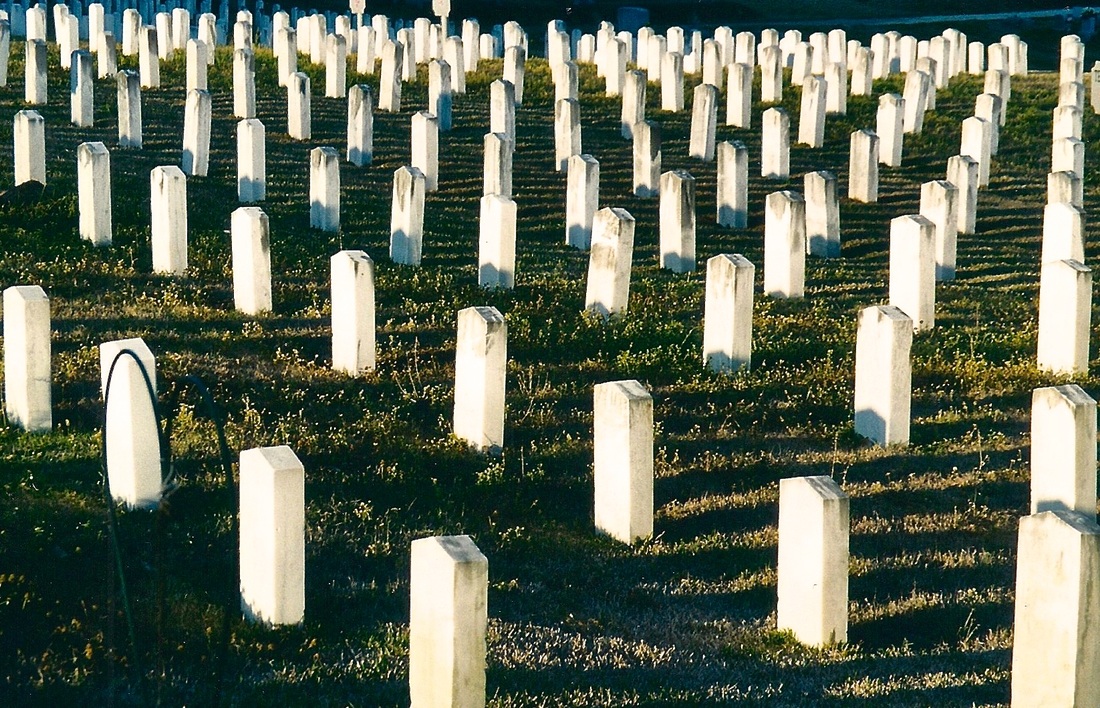
Vicksburg is the Key
Story and photos by Rick Jordahl
By late 1862, Vicksburg was the most important Confederate stronghold on the Mississippi. Situated upon bluffs overlooking a bend in the river, Vicksburg bristled with defense batteries and presented a formidable obstacle to Union General U.S. Grant as he set about to open the river to the Union. “Vicksburg is the key”, said President Lincoln, and “the War can never be brought to a close until the key is in our pocket”.
Grant faced Lt. General John C. Pemberton in command of 50,000 entrenched Confederate troops surrounding the fortress city. Failed Union initiatives at Chickasaw Bluffs, Yazoo Pass and Duckport made it apparent why Vicksburg was known as the ‘Gibralter of the Confederacy”.
Grant decides to assemble Union forces south of Vicksburg, mobilize on the east bank of the Mississippi and attack Vicksburg from the east. This required Rear Admiral David Porter’s fleet to run the gauntlet past the defensive guns at Vicksburg and, farther south, bombard Grand Gulf in an attempt to secure a landing.
Finally, on April 29th, 1863, Grant’s troops came ashore on the east bank of the river in a massive amphibious landing at Bruinsburg. The Union invasion had begun.
Grant’s diversionary tactics and victories at Port Gibson, Raymond, and Jackson stretch Pemberton’s army dangerously thin. On May 16th, a crucial battle at Champion Hill brings Union forces closer to Vicksburg. (See an extensive and detailed account of this battle on CivilWarAlbum.com- Champion Hill)
After another confrontation at Big Black River, Union forces attempt to take the city by assault but suffer heavy casualties. Grant orders Vicksburg placed under siege and closes all supply routes. The 48-day siege causes great suffering among Confederate civilians and soldiers alike and finally, on July 4th, 1863, Pemberton surrenders. The six month campaign and siege claims 19,000 casualties and deals a crippling blow to the Confederacy.
Actually, history dealt a double blow to the Confederacy at this time. Not only did Vicksburg fall but the Union also prevailed at the 3-day Battle of Gettysburg- the biggest battle of the Civil War- just one day before the Confederate Army at Vicksburg surrendered to Grant.
Today, the Vicksburg National Military Park is one of the largest and best preserved Civil War battlefields in the nation. The Park is home to over 1,300 monuments and markers, a 16- mile auto tour, the USS Cairo museum as well as the Vicksburg National Cemetery, one of the most beautiful in the country.
Story and photos by Rick Jordahl
By late 1862, Vicksburg was the most important Confederate stronghold on the Mississippi. Situated upon bluffs overlooking a bend in the river, Vicksburg bristled with defense batteries and presented a formidable obstacle to Union General U.S. Grant as he set about to open the river to the Union. “Vicksburg is the key”, said President Lincoln, and “the War can never be brought to a close until the key is in our pocket”.
Grant faced Lt. General John C. Pemberton in command of 50,000 entrenched Confederate troops surrounding the fortress city. Failed Union initiatives at Chickasaw Bluffs, Yazoo Pass and Duckport made it apparent why Vicksburg was known as the ‘Gibralter of the Confederacy”.
Grant decides to assemble Union forces south of Vicksburg, mobilize on the east bank of the Mississippi and attack Vicksburg from the east. This required Rear Admiral David Porter’s fleet to run the gauntlet past the defensive guns at Vicksburg and, farther south, bombard Grand Gulf in an attempt to secure a landing.
Finally, on April 29th, 1863, Grant’s troops came ashore on the east bank of the river in a massive amphibious landing at Bruinsburg. The Union invasion had begun.
Grant’s diversionary tactics and victories at Port Gibson, Raymond, and Jackson stretch Pemberton’s army dangerously thin. On May 16th, a crucial battle at Champion Hill brings Union forces closer to Vicksburg. (See an extensive and detailed account of this battle on CivilWarAlbum.com- Champion Hill)
After another confrontation at Big Black River, Union forces attempt to take the city by assault but suffer heavy casualties. Grant orders Vicksburg placed under siege and closes all supply routes. The 48-day siege causes great suffering among Confederate civilians and soldiers alike and finally, on July 4th, 1863, Pemberton surrenders. The six month campaign and siege claims 19,000 casualties and deals a crippling blow to the Confederacy.
Actually, history dealt a double blow to the Confederacy at this time. Not only did Vicksburg fall but the Union also prevailed at the 3-day Battle of Gettysburg- the biggest battle of the Civil War- just one day before the Confederate Army at Vicksburg surrendered to Grant.
Today, the Vicksburg National Military Park is one of the largest and best preserved Civil War battlefields in the nation. The Park is home to over 1,300 monuments and markers, a 16- mile auto tour, the USS Cairo museum as well as the Vicksburg National Cemetery, one of the most beautiful in the country.
